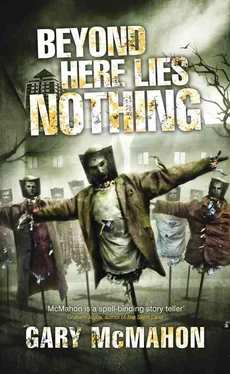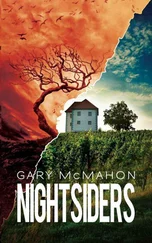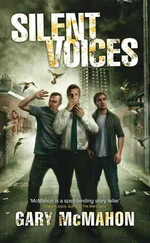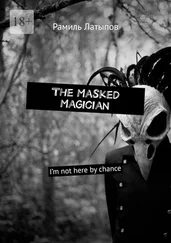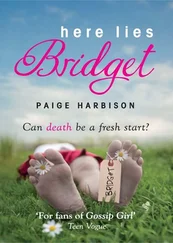Gary McMahon
BEYOND HERE LIES NOTHING
This one’s dedicated to my cousin Linda, who told me all about the scary movies she’d seen at the cinema when I was much too young to go and see them for myself.
I never forgot that — it meant a lot to me at the time.
Captain Clickety
He’s coming your way
Captain Clickety
He’ll make you pay
Once in the morning
Twice in the night
Three times Clickety
Will give you a fright
— Traditional children’s skipping song (origin unknown)
I has been sent to bed by mummy and daddy. they dont want me to hear them fight. my name is jack. I want to keep a dairy and this is it. daddy thinks people who rite are funny in the head. he says I should be playin outside with my football or on my bike. I like my bike. but daddy wont let me play outside when it dark. that the scary time. nasty man mite take me away like that boy in the news before. my sister is daisy like a flower. I think somebody hates us. he is in the house all the time but we cant see him. he makes niose when nowbody else is here. he wants to hurt us. we hide under the bed when mummy and daddy are in the pub. he canit see us there. we inibible. inbisevil. he canit see us. but he is there. in the walls and under the floor. he creeps about and peeps threw the gaps to try and see me and daisy flower. I am scared. I can here him now. he goes clikcety clikcety like when I spilt my marbels on the kichen floor. clikcey clikcety clikc.
— From the diary of Jack Pollack, April 1974
PART ONE
The Gone-Away Girls
“Promise me that you won’t try to save me.”
— Abby Hansen
IT STARTS, FOR him, with an ending…
In fact, it begins with a funeral.
Death is a constant in the Concrete Grove, just as it is everywhere else in the world. People come and they go; they live and they die, blooming and then withering like seasonal flowers on the stem. This natural cycle perpetuates, bringing existence and extinction and joy and sorrow, and everything else in-between, into sharp focus. But in the Grove these fundamental truths are pushed even closer to the surface, like a spiritual hernia; it is a place where the cycles of life and death are played out at an intimate scale across an epic canvas. A million different beginnings and endings, each with their separate details, their intimate little secrets…
But for Marc Price, it begins with an ending…
MARC WATCHED THE short funeral cortege as it made its way off the main road and into the grounds of the Near Grove Crematorium, following the narrow tarmac road past the gravestones and monuments. Most of the cars were old, outdated models, but kept in good shape by their mostly aged owners. None of the old man’s friends had been what anyone might call well off. They were normal people, with normal amounts of cash in their pockets.
He sat in his car outside the front gates, watching through the grimy windscreen. He recognised not one of the cars in the small queue of vehicles. In fact he didn’t know anyone who’d known Harry Rose apart from his uncle, but his uncle was dead too, five years in the grave from cancer of the liver. Uncle Mike had introduced Marc to Harry Rose, but only from beyond the grave — his name had been enough to convince the old man to talk to him. The two men had once drunk together. They’d been long-ago beer buddies.
The stereo was playing softly; the CD was a compilation of Ennio Morricone’s film scores Harry Rose had given him not long after their first meeting. Marc closed his eyes and listened to the music, trying not to think about the immediacy and inevitability of death.
When he opened his eyes again, the final car in the grim little procession was inching its way through the crematorium gates. Bright shards of sunlight broke through the clouds and made patterns on the shiny roof and bonnet, which were a direct contrast to the dirty, dented bodywork of his little Nissan. He stared at the layer of dust on the dashboard, a light scattering of grey. The torn seats, the battered interior… somehow the poor condition of the car represented a facet of his lifestyle that he didn’t like to think about. It had been new once, this vehicle, but now it was old. Not a profound insight, but one that moved him deeply on this particular day at this grim hour.
Marc turned off the engine, removed the ignition key, and opened the car door. He stepped out onto the road, glancing to the side to make sure there were no cars speeding towards him, and locked the door (he used the key; there was no central locking on this old beast). He pulled up his collar against the slight autumnal chill and jogged across the road, towards the iron crematorium fence. He had not been here for a long time — not since they’d cremated Uncle Mike. The place made him feel uncomfortable, exhuming memories that he’d rather stayed buried. Conflicting images and sensations almost overwhelmed him: the smell of booze on his uncle’s breath, the man’s strong arms lifting him off the ground when he was a child, his harsh voice, the way the skin around his eyes had creased when he smiled, almost covering his eyes.
He stood at the fence and stared through the trees. People were moving around in there, climbing out of their cars, milling around like geese in a field before the service began. He could see some of them shaking hands or speaking softly to one another, and others lit up cigarettes to smoke away the minutes before they were allowed to enter the small redbrick crematorium building. The weight of the dead was heavy here. Marc could feel it everywhere, even on the oft-trodden footpath outside the fence.
Marc wasn’t sure what he was doing here. He had not known Harry Rose for long, and he had not known him too well. Yes, the two men had forged a bond of sorts over the past few months, but it was based on Marc’s desire for information and the old man’s need for company in the long, dim days before he died. They had been convenient companions, nothing more.
Yes, Harry had once known Marc’s Uncle Mike well, many years ago, but Marc had known neither of the men beyond the superficial.
He reached inside his pocket and took out his mobile phone, checked it for messages, and then switched it off. He rarely received calls or texts. He led a deliberately friendless lifestyle, preferring to spend time on his own. He didn’t know why he chose to ostracise himself from others, but isolation agreed with him. That was all he needed to know, the only justification he required.
He started towards the main gates, reluctant to enter, yet knowing that it was the least he could do — to pay the man his respects, say a final goodbye before the flames took him. He didn’t need to hang around afterwards, and the strangers here would not press him to do so.
Loose stones crunched under his feet as he walked along the path, between grubby monuments and grave markers. The air was chill, the sky bright and open. Traffic noise dimmed behind him, as if he were in the process of entering a sealed environment.
Marc stood at the edge of the small group of mourners, trying not to be noticed. He wished he hadn’t given up smoking; that would have given him something to do with his hands as he waited.
“Excuse me.”
Marc looked up, resisting the urge to sigh. He had been staring at his feet, so failed to notice the man’s approach. “Hello,” he said, holding out his hand in an instinctive gesture that he didn’t really mean.
Читать дальше
